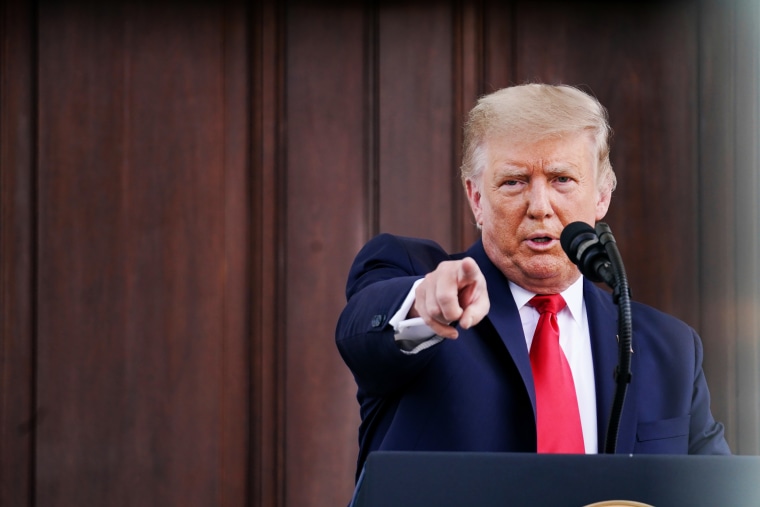Among the most jarring elements of the 2016 presidential campaign was Donald Trump's emphasis on prosecuting and incarcerating his perceived political foes. During one of the presidential debates, Hillary Clinton said it was a good thing "someone with the temperament of Donald Trump is not in charge of the law in our country," leading the Republican to interrupt and declare, "Because you'd be in jail."
All the while, as the right-wing "lock her up!" mantra became a staple of GOP rallies, Trump routinely suggested he'd direct his Justice Department to go after his former opponent -- a private citizen -- because he wanted to imprison her in the name of partisan vengeance.
It wasn't idle chatter or hollow bluster. In fact, the Mueller Report documented multiple instances in which the president tried to dictate a Justice Department investigation into Hillary Clinton.
All of this came to mind after seeing a Trump press conference this week, in which USA Today's David Jackson asked about the president's accusations of criminal misconduct against his foes, including Barack Obama and Joe Biden. The Republican didn't hesitate.
"They spied on my campaign. And if they were [Republicans], they would have been in jail two years ago. They would have been in jail -- literally, if this side were the Democrat side, they would have been in jail two years ago for 50-year terms for treason and other things."
It's worth pausing to note that all of this is bonkers; Obama and Biden did not spy on the Trump campaign; and no one committed "treason."
Nevertheless, the reporter pressed on, asking Trump whether he wants the Justice Department "to indict people over this." The president hedged, before declaring, "I have every right to have been very much involved, and maybe someday I'll get involved in it."
When Jackson stated the obvious -- "It sure sounds like you want to prosecute people" -- Trump didn't deny it.
"Let me just tell you something: President Obama and Biden -- Sleepy Joe, he knew everything that was happening," the president said, describing developments that never occurred. "They were spying on my campaign, and they got caught. Now let's see what happens."
He went on to raise the prospect of going after his predecessor directly: "This started at Obama, and some people would say -- and some people, 'Well, but he was president,' like, 'Let's leave him alone.' If it were me, they wouldn't be leaving me alone, I can tell you. It's a totally double standard, and it's a -- it's a disgrace."
All of this comes against a backdrop in which the president, on multiple occasions, has publicly said the only way for Attorney General Bill Barr to be "the greatest of all time" would be for him to prosecute his political enemies before Election Day.
This didn't generate considerable attention this week, largely because we've grown so accustomed to it. Trump discussing prosecutions against his perceived domestic enemies has become so common, it's practically the background noise of our political lives.
But it nevertheless helps capture the Republican's twisted approach to the rule of law.

